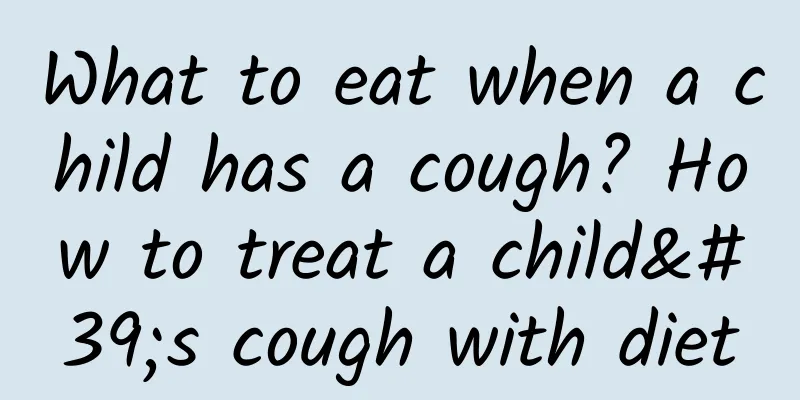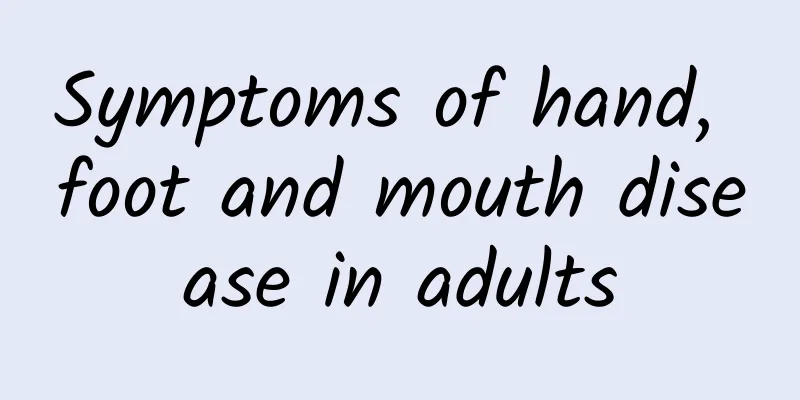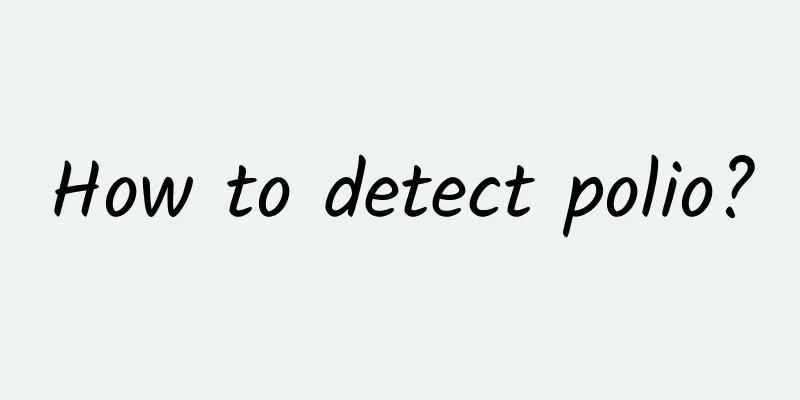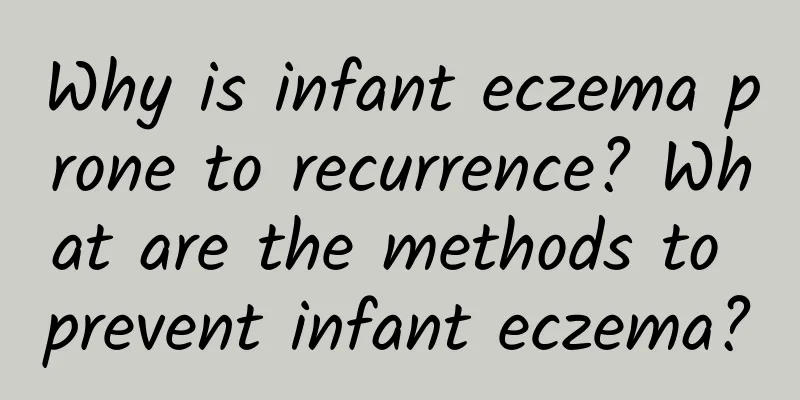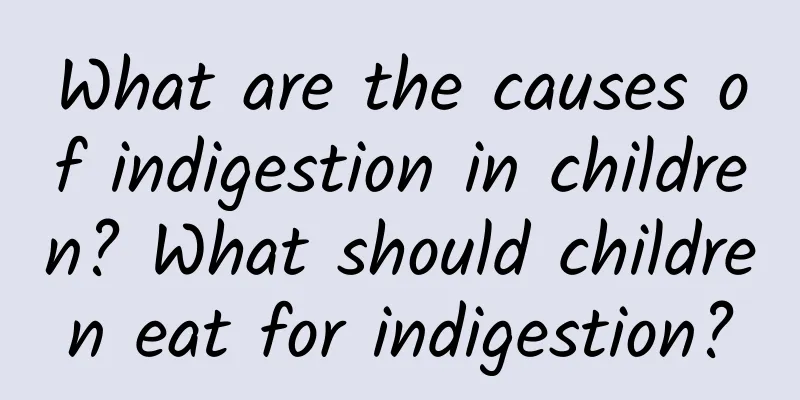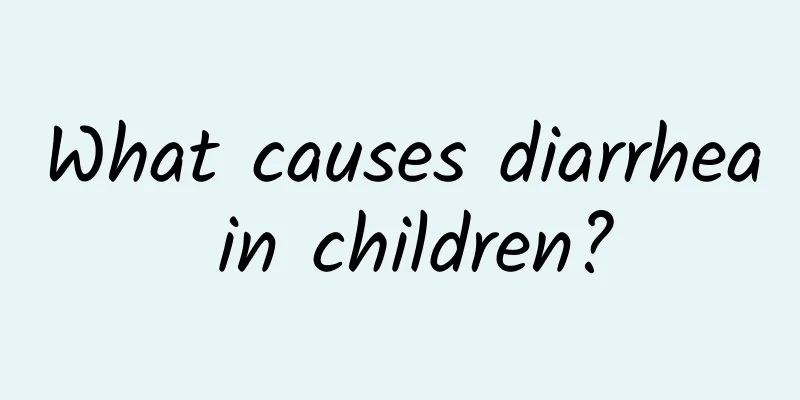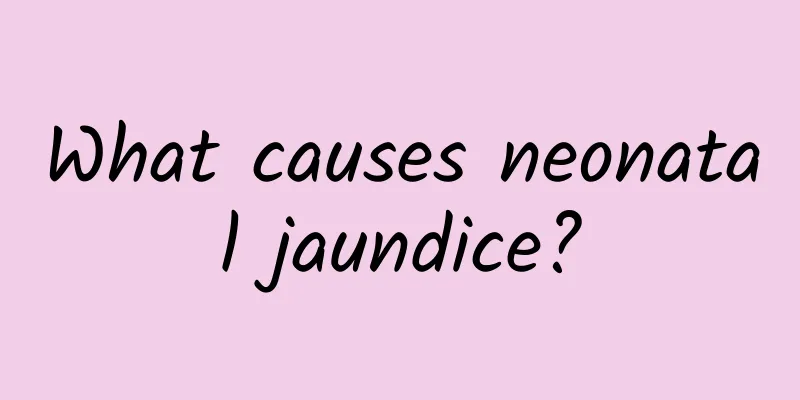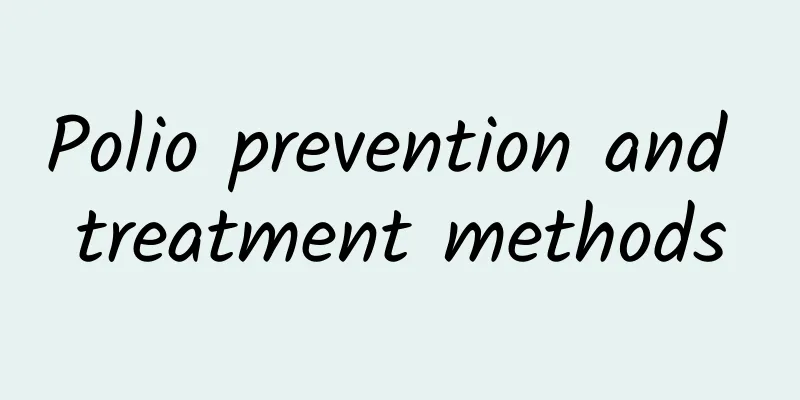What are the misunderstandings about the treatment of children's colds? Several key points for nursing after children have a cold
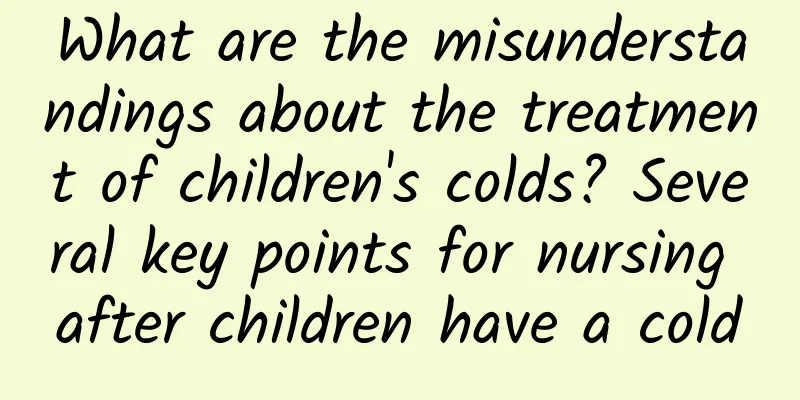
|
Colds are common in children, especially in autumn when the temperature changes. When babies catch a cold, mothers are very worried, but don't give them medicine randomly! So what are the misunderstandings in the treatment of children's colds? Misunderstandings in the treatment of children's colds 1. Use antibiotics for colds Experts say that viruses or bacteria can cause colds. Colds caused by viruses are viral colds, and colds caused by bacteria are bacterial colds. Antibiotics are only effective for bacterial colds. In fact, many colds are viral colds. Strictly speaking, there is no effective medicine for viral colds. It is only symptomatic treatment, and antibiotics are not needed. This is a misunderstanding that needs to be avoided. 2. Injection of immunoglobulin to prevent colds Many parents mistakenly believe that injecting "gamma globulin" can prevent colds, but after a period of injection, there is no effect. Experts say that "gamma globulin" is a biological preparation extracted from plasma. With current technology, there is still a risk of contamination and it is not 100% safe. Moreover, it only works on one of the globulin deficiencies in specific immune function, which shows that its ability to improve immune function is very limited, let alone prevent colds. 3. Heavy nasal sound means you have a cold Experts point out that many parents think that children with nasal congestion and snoring are suffering from a cold, but this is mostly an over-concern. The main reason is the accumulation of excessive and slowly sticky nasal secretions. Especially when there is no fever or changes in activity, there is no need to worry. As long as you develop a good habit and clean the nasal secretions regularly every day, the above situation will not occur. Key points for nursing after a cold in children Eat a healthy diet Babies with colds and fever are prone to loss of appetite, nausea, vomiting, abdominal pain and diarrhea. Diet care is very important. The general principle is to choose easily digestible food and eat small meals frequently. If you force your baby to eat, it will cause a heavy burden on the baby's gastrointestinal tract, which is harmful to the body and recovery from the disease. The amount of food you eat each time can be smaller, the frequency of eating can be more, and give your baby more fruit juice, such as fresh orange juice. Babies with subsided fever and better digestive ability can have a thicker diet. As the baby's condition improves, generally about one week can gradually return to the usual diet. Take rest The younger the baby is, the more rest and care he needs. He should resume activities after the symptoms disappear to avoid recurrence due to failure to eliminate the lesion. If the baby has a fever, it is best to rest in bed to reduce the stimulation of the central nervous system. Effective sweating Encourage your baby to drink more water. Water can increase the body's cell metabolism, promote the excretion of toxins, and effectively sweat, which is conducive to lowering body temperature. The baby's clothes and bedding should not be too many or too thick. The baby should wear loose clothes and pants to facilitate effective sweating and heat dissipation. Never let the baby with fever wear too many clothes or cover him with too thick bedding, otherwise it will easily lead to persistent high fever and even induce high fever convulsions! After taking antipyretic drugs, the baby will sweat a lot. If the clothes and bedding are wet with sweat, they should be changed in time to avoid catching cold and aggravating the condition. Suitable environment Keep the baby's room well ventilated. For babies with fever, fresh air helps the skin sweat effectively and lowers the body temperature. Avoid blowing air directly at the baby, which will cause the baby's skin blood vessels to contract and aggravate the condition. Arrange a good rest environment for the baby, keep the room quiet, don't talk loudly, and increase the baby's sleep time as much as possible to reduce energy consumption. Let the baby lie on the bed, tell the baby stories softly or listen to music to help the baby relax, which will promote the recovery of the disease. Physical cooling Physical cooling should be the first choice for babies with fever, especially for infants with fever. When physical cooling is ineffective, a small amount of antipyretics can be used to reduce the temperature. Physical cooling methods include: local heat dissipation, warm bath or warm water sponge bath, cold saline enema, etc. Among them, local heat dissipation is the simplest and most suitable for family use. |
>>: How does TCM treat diarrhea in children? 4 TCM methods to improve diarrhea in children
Recommend
What causes neonatal jaundice? 5 causes of neonatal jaundice
Neonatal jaundice can be said to be the most comm...
What are the symptoms of iron deficiency in babies? What should be paid attention to when babies are iron deficient?
There are many symptoms of iron deficiency in bab...
How to check if your child has ADHD
I believe that many parents are not very clear ab...
What to do if your child has phlegm in his throat
When children have upper respiratory tract infect...
What are the traditional Chinese medicines for treating colds in children?
Traditional Chinese medicines for treating childr...
What are the treatments for tics in children? What are the treatments for tics in children?
The survey found that pediatric tics are the most...
Symptoms of jaundice in children
As we all know, many newborns will have jaundice ...
What are some simple ways to prevent mumps?
As people's pace of life accelerates, many pe...
What are the early diagnosis methods for acute laryngitis in children?
Acute laryngitis in children is common in childre...
What should I do if I am deficient in trehalase? What tests are needed for trehalase deficiency?
Infants may have sucrase and isomaltase deficienc...
Can I get hand, foot and mouth disease again if I have had it once? Can hand, foot and mouth disease recur?
Hand, foot and mouth disease is a disease that of...
What can children with mumps eat
Children with mumps can relieve symptoms by eatin...
How to treat pediatric eczema and what are the prevention methods for pediatric eczema
Eczema is a very common disease. Although we all ...
The latest treatment for pneumonia in children
I believe many people have heard of pneumonia, be...
How to prevent acute laryngitis in children
How to prevent acute laryngitis in children? In f...
